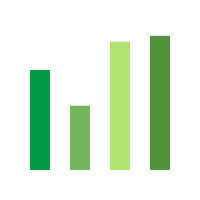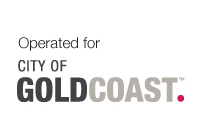The unemployment rate is derived from the ABS labour force survey and Centrelink data and compiled by the Department of Employment. It is published quarterly in the Small Area Labour Markets publication, for Local Government Areas. The unemployment rate shown here is the proportion of the resident labour force (those in work or looking for work and aged over 15) who are looking for work. Unemployment does not include people who don’t have a job but are not seeking a job.
Unemployment is an important indicator of the economic success of an area. A low unemployment rate can indicate an affluent area with a high rate of access to jobs, or a place where those who can’t find jobs leave the area. A high rate can indicate a declining economy with closures of key industries, or a residential area with a significantly disadvantaged population.
Note: The Department of Employment advise that highly disaggregated labour force and unemployment estimates at the LGA level can display significant variability and should be viewed with caution. The figures are smoothed using a four-quarter (annual) average to minimise the variability inherent in small area estimates.
This page presents unemployment estimates for benchmark regions which are headline figures widely published by government and media sites but are not directly comparable to the LGA estimates as they are not annual averages. For more information, see the data notes.


| Unemployment | ||||||
|---|---|---|---|---|---|---|
| Gold Coast City | Regional QLD | Queensland | Australia | |||
| Quarter | Unemployed people | Labour force | Unemployment rate % | Unemployment rate % | Unemployment rate % | Unemployment rate % |
| 2024 | ||||||
| June | 12,841 | 378,054 | 3.4 | 3.8 | 4.1 | 3.9 |
| March | 13,577 | 371,663 | 3.7 | 3.9 | 4.0 | 3.8 |
| 2023 | ||||||
| December | 11,858 | 365,072 | 3.2 | 3.9 | 4.0 | 3.7 |
| September | 10,930 | 361,004 | 3.0 | 3.6 | 3.8 | 3.6 |
| June | 9,963 | 361,529 | 2.8 | 3.4 | 3.6 | 3.6 |
| March | 8,572 | 362,292 | 2.4 | 3.4 | 3.7 | 3.6 |
| 2022 | ||||||
| December | 10,741 | 364,498 | 2.9 | 3.5 | 3.8 | 3.7 |
| September | 12,604 | 369,981 | 3.4 | 3.9 | 4.1 | 4.0 |
| June | 14,541 | 372,547 | 3.9 | 4.3 | 4.5 | 4.3 |
| March | 16,445 | 373,189 | 4.4 | 4.6 | 4.8 | 4.6 |
| 2021 | ||||||
| December | 17,774 | 371,598 | 4.8 | 5.0 | 5.4 | 5.1 |
| September | 19,764 | 367,555 | 5.4 | 5.4 | 6.0 | 5.6 |
| June | 22,658 | 358,394 | 6.3 | 6.3 | 6.7 | 6.2 |
| March | 24,767 | 345,401 | 7.2 | 6.8 | 7.1 | 6.6 |
| 2020 | ||||||
| December | 23,186 | 338,175 | 6.9 | 6.8 | 7.0 | 6.4 |
| September | 21,002 | 332,653 | 6.3 | 6.7 | 6.7 | 6.1 |
| June | 19,296 | 334,340 | 5.8 | 6.3 | 6.3 | 5.6 |
| March | 18,881 | 342,230 | 5.5 | 6.0 | 6.0 | 5.2 |
| 2019 | ||||||
| December | 19,807 | 347,516 | 5.7 | 6.1 | 6.0 | 5.2 |
| September | 20,354 | 351,681 | 5.8 | 6.0 | 6.0 | 5.1 |
| June | 18,755 | 349,595 | 5.4 | 5.8 | 5.9 | 5.1 |
| March | 16,245 | 346,352 | 4.7 | 5.9 | 6.0 | 5.2 |
| 2018 | ||||||
| December | 14,924 | 341,879 | 4.4 | 6.0 | 6.0 | 5.3 |
| September | 14,496 | 336,279 | 4.3 | 6.1 | 6.0 | 5.4 |
| June | 14,788 | 334,985 | 4.4 | 6.0 | 6.0 | 5.5 |
| March | 15,575 | 331,415 | 4.7 | 5.9 | 5.9 | 5.5 |
| 2017 | ||||||
| December | 16,594 | 326,539 | 5.1 | 6.0 | 6.0 | 5.6 |
| September | 15,954 | 321,050 | 5.0 | 6.1 | 6.0 | 5.7 |
| June | 16,894 | 317,296 | 5.3 | 6.3 | 6.1 | 5.7 |
| March | 17,096 | 316,067 | 5.4 | 6.7 | 6.2 | 5.7 |
| 2016 | ||||||
| December | 17,474 | 317,274 | 5.5 | 6.7 | 6.1 | 5.7 |
| September | 17,739 | 322,417 | 5.5 | 6.6 | 6.1 | 5.7 |
| June | 17,360 | 323,205 | 5.4 | 6.7 | 6.2 | 5.9 |
| March | 17,845 | 321,114 | 5.6 | 6.7 | 6.1 | 5.9 |
| 2015 | ||||||
| December | 16,710 | 316,967 | 5.3 | 6.9 | 6.3 | 6.1 |
| September | 17,450 | 311,491 | 5.6 | 7.1 | 6.5 | 6.2 |
| June | 17,933 | 307,583 | 5.8 | 7.0 | 6.5 | 6.1 |
| March | 17,761 | 303,999 | 5.8 | 6.8 | 6.5 | 6.1 |
| 2014 | ||||||
| December | 18,227 | 302,332 | 6.0 | 6.6 | 6.4 | 6.1 |
| September | 17,379 | 298,057 | 5.8 | 6.2 | 6.2 | 6.0 |
| June | 16,377 | 291,956 | 5.6 | 6.1 | 6.0 | 5.9 |
| March | 16,583 | 289,512 | 5.7 | 6.1 | 5.9 | 5.8 |
| 2013 | ||||||
| December | 16,328 | 287,585 | 5.7 | 6.0 | 5.8 | 5.7 |
| September | 16,338 | 285,054 | 5.7 | 6.2 | 5.9 | 5.6 |
| June | 16,550 | 286,424 | 5.8 | 6.2 | 5.9 | 5.4 |
| March | 15,709 | 285,399 | 5.5 | 6.0 | 5.8 | 5.3 |
| 2012 | ||||||
| December | 15,944 | 285,203 | 5.6 | 6.0 | 5.8 | 5.2 |
| September | 16,148 | 287,392 | 5.6 | 5.9 | 5.6 | 5.2 |
| June | 16,857 | 289,110 | 5.8 | 6.0 | 5.5 | 5.2 |
| March | 17,577 | 288,972 | 6.1 | 6.1 | 5.5 | 5.1 |
| 2011 | ||||||
| December | 17,642 | 286,227 | 6.2 | 6.1 | 5.5 | 5.1 |
| September | 17,361 | 282,617 | 6.1 | 6.0 | 5.5 | 5.1 |
| June | 16,714 | 277,971 | 6.0 | 5.8 | 5.4 | 5.0 |
| March | 16,479 | 276,008 | 6.0 | 5.8 | 5.5 | 5.1 |
| 2010 | ||||||
| December | 16,927 | 274,213 | 6.2 | 5.9 | 5.5 | 5.2 |
Source: Australian Bureau of Statistics, Labour force survey catalogue number 6202.0, and Department of Employment, Small Area Labour Markets. Compiled and presented in economy.id by .id (informed decisions). Please refer to specific data notes for more information | ||||||
